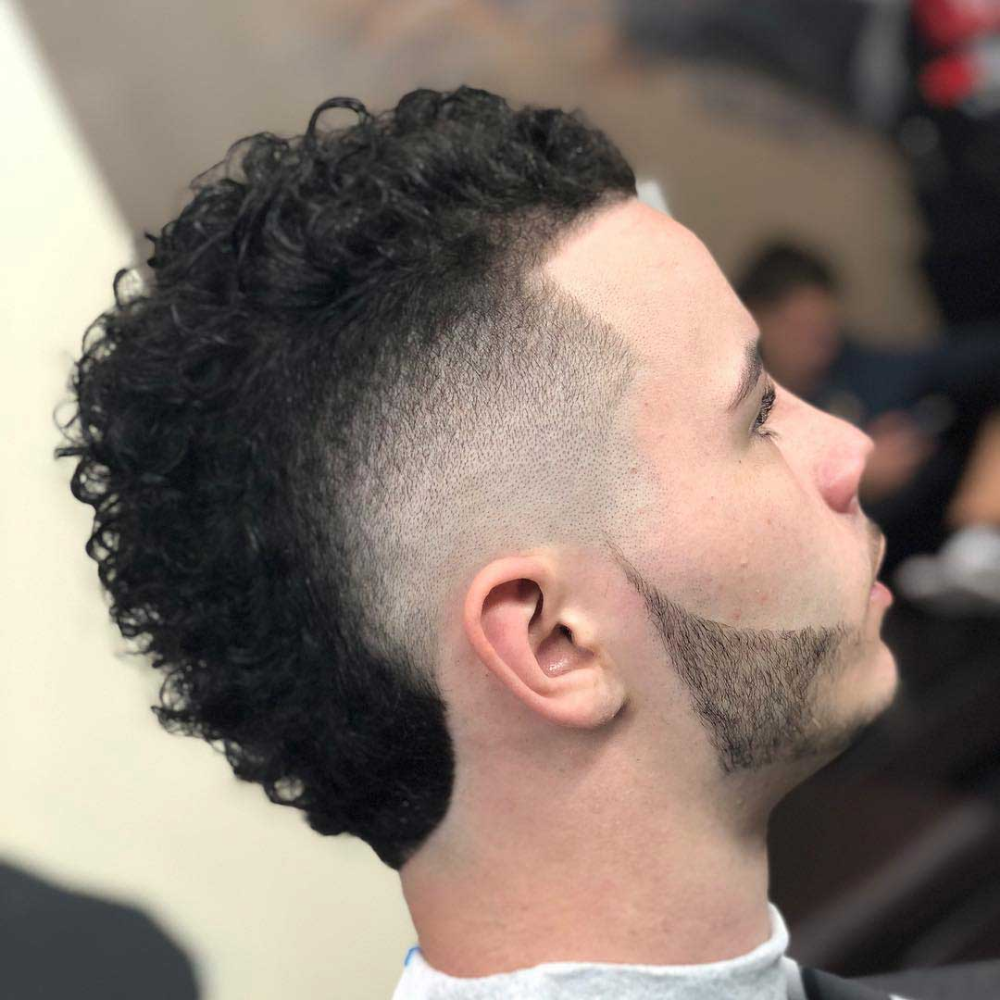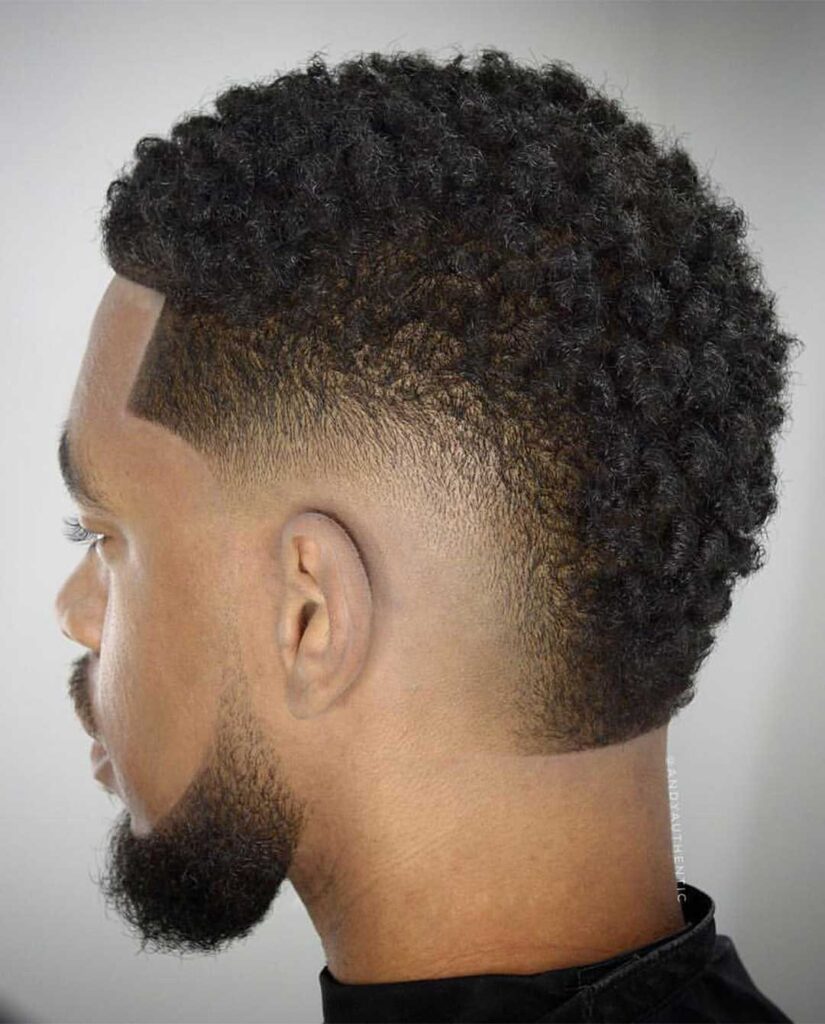The South of France haircut is stylish, sharp, and full of personality — but unless you describe it clearly, you might leave the barber’s chair with something completely different. Whether it’s your first time or you’re just switching barbers, knowing how to ask for a South of France haircut can make all the difference.
In this guide, you’ll learn:
- What to say to your barber
- The terminology that helps you get the perfect cut
- Tips for clear communication
- What to bring or show during your consultation
- Bonus: how to maintain the cut once you leave the shop
Let’s help you get the exact South of France fade you’re after — no awkward surprises.
Contents
- What is the South of France Haircut?
- What to Say: Sample Phrases to Use
- Know the Haircut Terminology
- Bring a Photo – It Makes All the Difference
- Tell Your Barber How You Style at Home
- Questions to Ask Your Barber
- Common Mistakes to Avoid
- What to Expect During the Cut
- Aftercare and Maintenance
- Products to Mention to Your Barber
- Final Thoughts
- Related Articles
What is the South of France Haircut?
Before you ask for it, let’s recap what it actually is.
The South of France haircut is a burst fade haircut with a longer textured or curly top. The fade curves around the ear and drops into the neckline, while the top is kept short to medium-length and often styled with twists or defined curls. The cut is tight, clean, and modern — made famous by Usher and popular in the UK urban grooming scene.
What to Say: Sample Phrases to Use
Here’s how to explain it clearly to your barber:
Basic Version:
“I’d like a South of France fade — so a burst fade around the ears, with the top kept about 2–3 inches and left curly. Please blend the fade into my beard, and taper the neckline.”
With Add-Ons:
“Can you give me a South of France haircut with a part on the left side and sponge twists on top? Keep the fade mid and clean, and line up the beard.”
Know the Haircut Terminology
Understanding these barber terms will help you communicate better:
| Term | What It Means |
|---|---|
| Burst Fade | A fade that curves around the ear like a half-moon |
| Taper | A subtle fade around the neck or sideburns |
| Line-Up / Shape-Up | Sharp lines around the hairline and temples |
| Twist Sponge | A tool used to create textured twists or curls |
| Blend | Smoothing the transition between hair lengths |
| Length on Top | How much hair is left above the fade |
| Skin Fade | A fade that goes all the way down to the skin |
Pro Tip: Always mention if you want the fade to blend into your beard or stay separate.
Bring a Photo – It Makes All the Difference
The easiest way to get exactly what you want? Show your barber a photo.


Even with the right terms, a visual reference removes any doubt. Try searching for:
- “South of France haircut with curls”
- “Usher haircut style”
- “South of France fade black men”
- Or show your own previous haircut if you’ve had it done before


Your barber can use the photo as a visual target, while tailoring it to your hair type and head shape.
Tell Your Barber How You Style at Home
Barbers cut differently depending on how you style and maintain your hair.
Tell them things like:
- “I twist my curls with a sponge daily”
- “I use a curl cream and air dry”
- “I want it easy to maintain without daily styling”
This helps them choose the right length on top, product suggestions, and even how to angle the fade.
Questions to Ask Your Barber
A good haircut starts with a conversation. Ask these questions before the clippers touch your head:
- “Will this work well with my hair type?”
- “How short should the fade go for my face shape?”
- “What length do you recommend for the top?”
- “Can this blend into my beard, or should I keep it separate?”
- “How often should I come back for a touch-up?”
This shows your barber that you’re intentional — and they’ll respond with helpful suggestions.
Common Mistakes to Avoid
- Just saying the name: “South of France” alone isn’t enough — always describe the top, fade height, and any extras.
- Not mentioning your beard: If you have facial hair, it needs to be considered in the blend.
- Assuming your barber knows it: Especially in the UK, not all barbers may know the term — use visuals or descriptions.
- Not speaking up: If something feels unclear, ask. A few extra seconds of explanation can prevent a regretful cut.
What to Expect During the Cut
Here’s what typically happens when getting a South of France fade:
- Consultation: Your barber will confirm the fade height, top length, and beard transition.
- Clippers: They’ll start fading around the ears with a burst pattern.
- Top Work: They’ll trim or shape your curls, depending on the length.
- Line-Up: Edges, beard, and neckline are defined.
- Styling: Curl sponge, cream, or gel may be applied.
A skilled barber should also recommend a routine and products for upkeep.
Aftercare and Maintenance
Once you’ve nailed the haircut, you’ll want to keep it sharp.
| Task | Frequency |
|---|---|
| Fade touch-up | Every 2–3 weeks |
| Beard lineup | Every 1–2 weeks |
| Moisturise curls | Daily |
| Wash and condition | 2–3 times per week |
| Refresh sponge twists | Every 2–3 days or daily |
Products to Mention to Your Barber
Your barber can suggest (or sell) the best products. Consider asking:
- “What curl sponge or cream do you recommend?”
- “Should I use edge control or oil for shine?”
- “How can I keep my curls defined all day?”
UK brands and popular picks:
- SheaMoisture Curl Smoothie
- Cantu Twist & Lock Gel
- Bulldog Beard Oil
- Magic Twist Sponge
Final Thoughts
The South of France haircut is a standout style — but getting it right starts with how you communicate. Use the correct terms, show photos, explain your styling habits, and ask questions. A few minutes of conversation with your barber can turn a generic fade into a custom look tailored just for you.
Speak up. Ask with confidence. And walk out with a haircut you’re proud of.
Free Download: Barber Consultation Checklist
Want the perfect South of France haircut every time?
- Know exactly what to say to your barber
- Avoid miscommunication & mistakes
- Includes visuals, terminology, and pro tips
